Today we talk about French support of the United States during the Revolutionary War. Yeah we know, whenever we mention anything about the French military some window licking booger eaters make inane comments–well the French supplied some throat cutters who had British blood on their minds during the fight for our nation. Keep that in mind as you read up.
We thought we knew the history: the French helped us during the Revolutionary War, but only their Navy. Sure, those ships kind of helped, but didn’t really do much. And French infantry never set foot in the colonies. Right?
Wrong.
Pretty much all of us were raised with the “French Navy only” version of Revolutionary War history. I knew very little about French military history until I worked closely with French Mountain Troops, Marines, and Legionnaires in Afghanistan. But even then, we didn’t talk about French support for our Revolution.
I remained ignorant of this subject until last year. Then in June 2014, the Breach Bang Clear crew had the good fortune to attend a Graham Combat pistol class in Virginia. On our last day, we took a few hours to visit Colonial Williamsburg, home of the College of William and Mary. On a whim, we decided to visit the college.
I walked through one building’s hallway reading plaques listing the names of William and Mary students who died in all of America’s wars. When I walked out of the building, I saw another plaque on an exterior wall. I approached the plaque, and what I saw surprised the hell out of me.
The plaque commemorates French troops who died at William and Mary’s makeshift hospital, and in other Williamsburg hospitals, during the Battle of Yorktown. When the plaque was dedicated in 1931, French Field Marshal Petain attended the ceremony. Petain was a hero of World War I, later reviled for leading Vichy France under the Nazis during WWII.
I had to look at the plaque several times to make sure I wasn’t misreading it. But the plaque showed exactly what I first thought it did: the names of 123 French troops, from eight regiments, who died fighting the British during the Siege of Yorktown. French troops fought and bled alongside American revolutionaries, and together they were ultimately victorious over their common enemy. Even though I had fought shoulder to shoulder with French troops in Afghanistan, I’d been totally oblivious to the fact that thousands of French grunts fought to secure American independence.
Yorktown is one of the most significant battles of the American Revolution. The French played a huge part in it. In fact, more French troops than Americans fought there.
“On the ground, no less than 8,800 Americans and 10,800 French soldiers were mobilized against some 7,500 British soldiers — a quarter of the British forces deployed to the continent.” (http://ambafrance-us.org/spip.php?article2793)
There is even a painting of British General Cornwallis surrendering to French and American troops at the battle’s conclusion. The scene is fictionalized since Burgoyne didn’t actually attend the surrender ceremony.
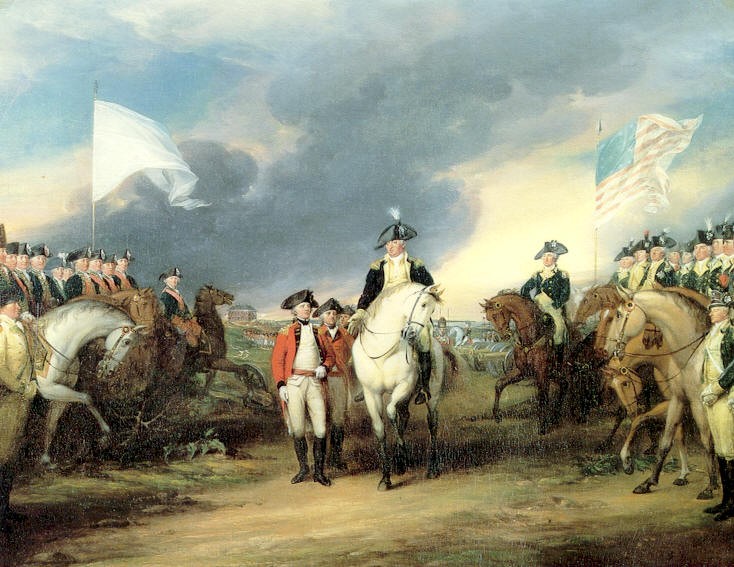
Yorktown.
One French engineer who fought at Yorktown, Stephen Rochefontaine, eventually became head of the U.S. Army Corps of Engineers, adopted New York City as his home and was buried there in 1814.
And France didn’t just contribute troops to one battle, or limit their support to a small number of ships and ground troops. France actually declared war on Great Britain, convinced Spain to do the same, and spent the equivalent of $13 billion on direct support for the American Revolution. As an American, I like to think we’d have beaten the British no matter what; as a realist, I know the French contribution to our freedom was invaluable.
This July 4th let’s remember that we’re free in large part because French brothers in arms fought and died for our cause. At times there’s been bad blood between us, but the truth is, France is our oldest ally. They had our back when we took up arms against the British, and we returned the favor in the World Wars.
And the descendants of the men who stood by us at Yorktown, Soissons, and Normandy are still standing by us today.
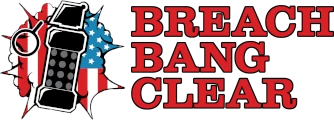
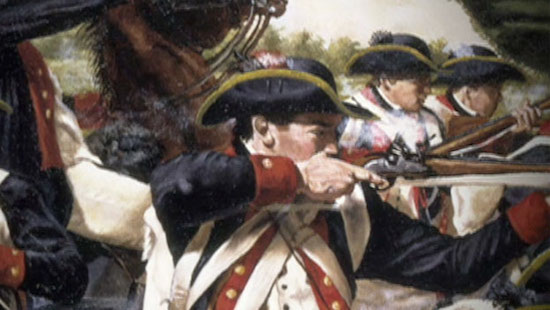
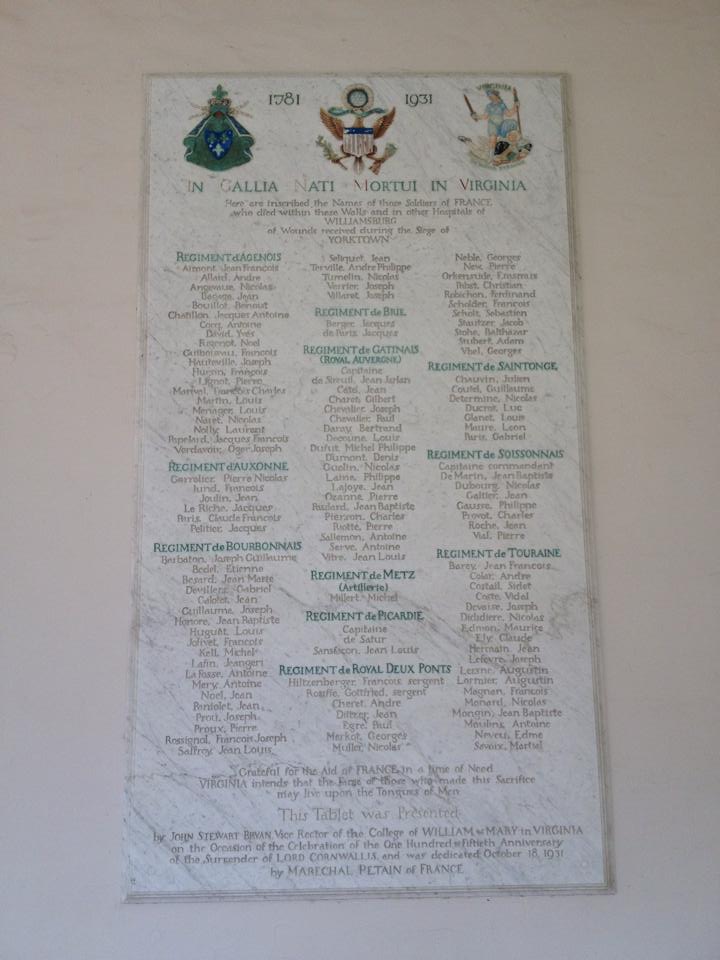
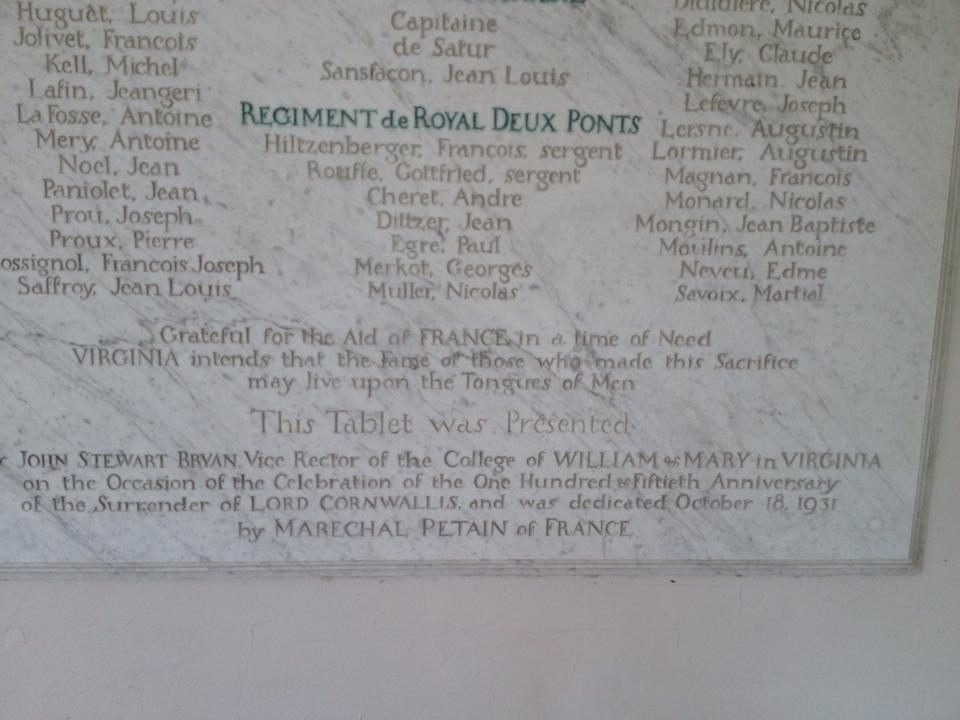
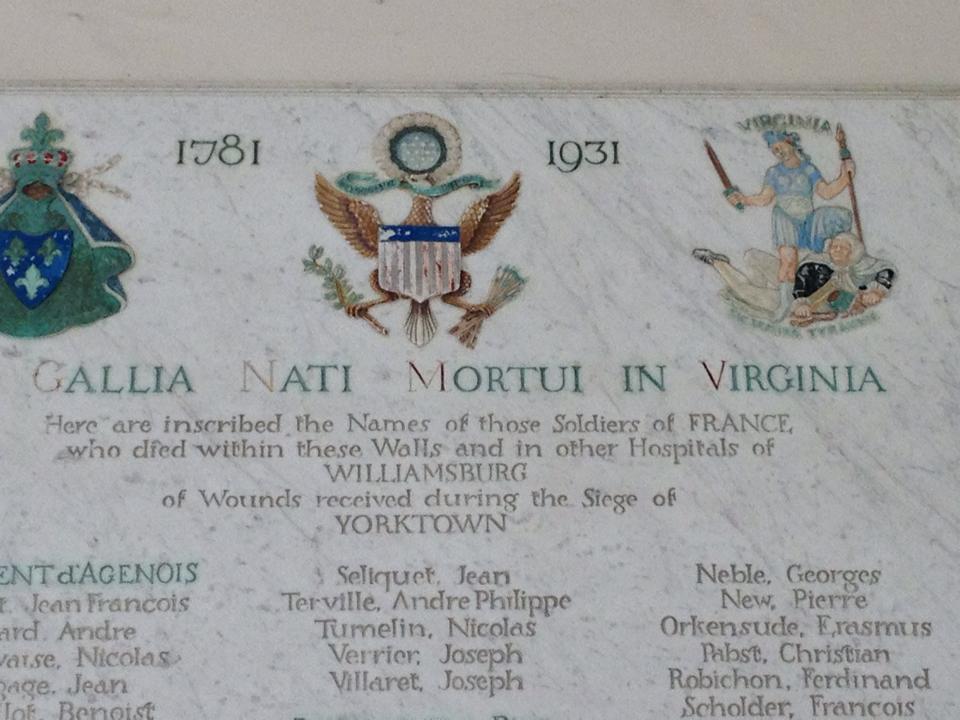
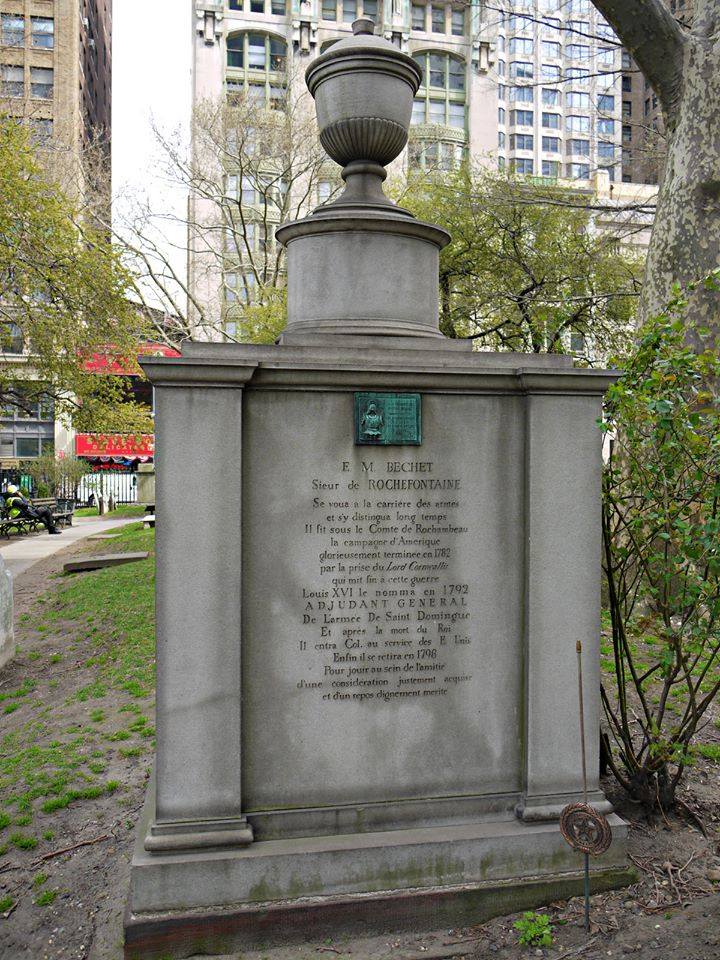
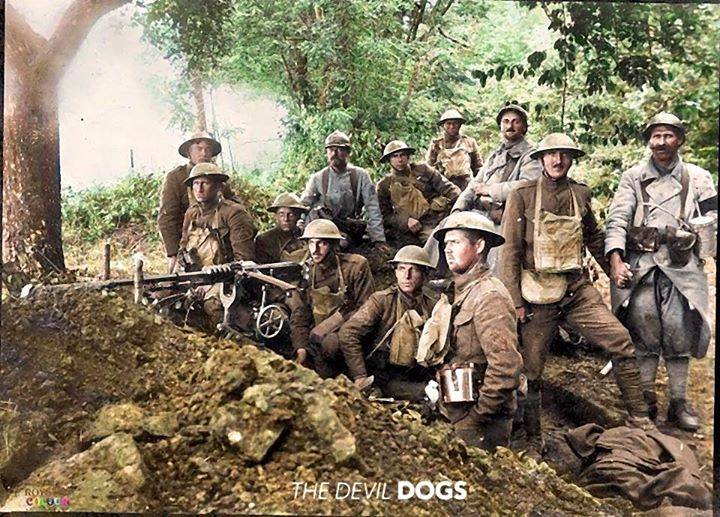
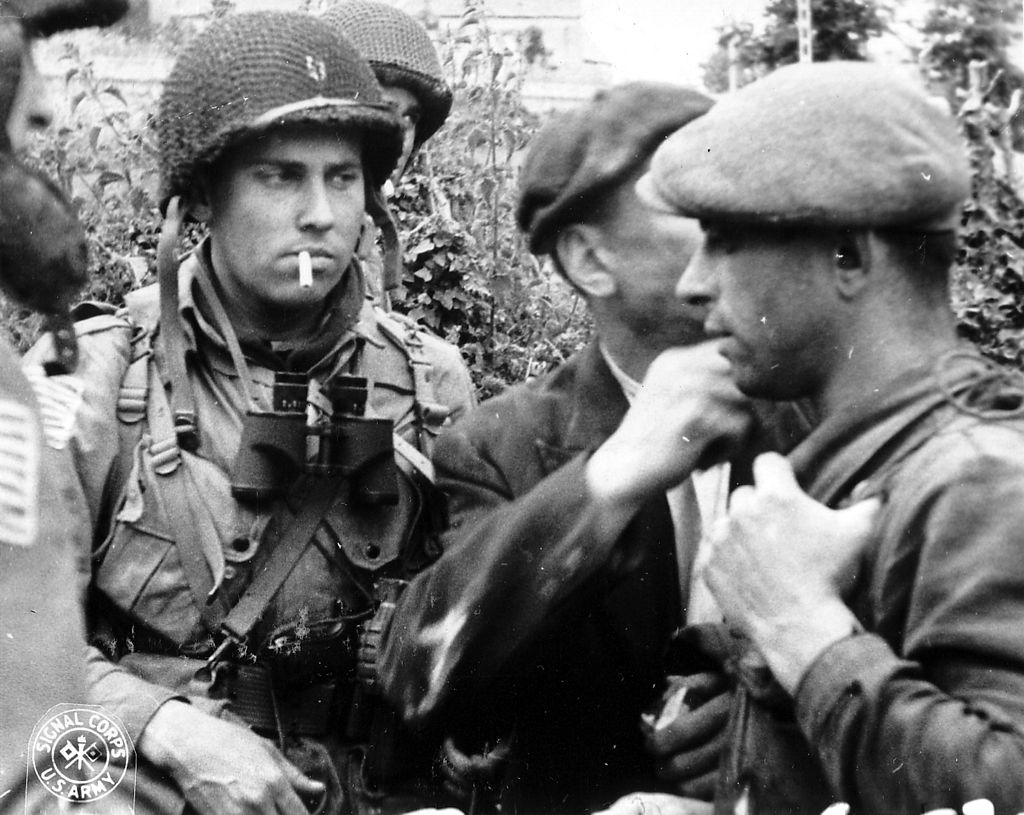
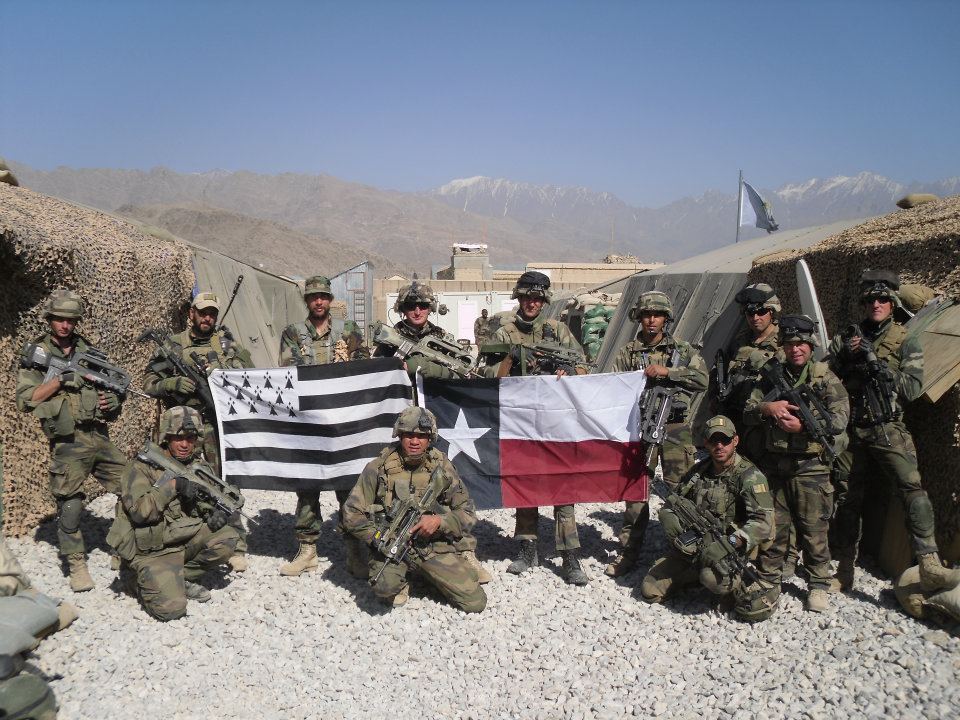

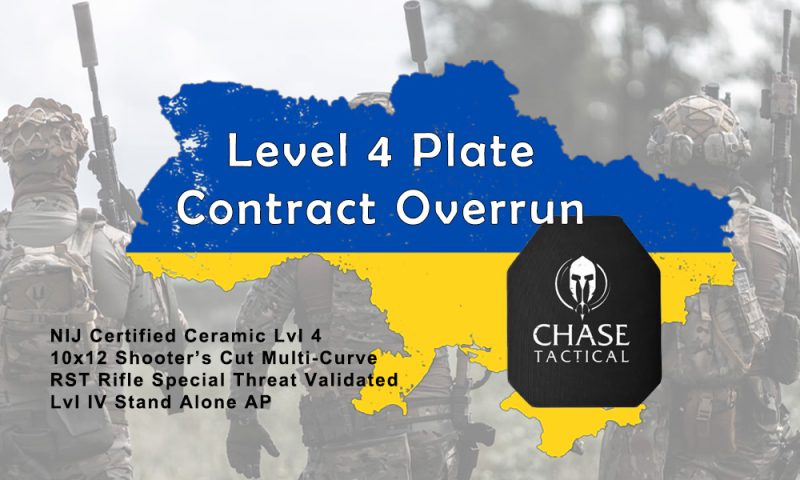




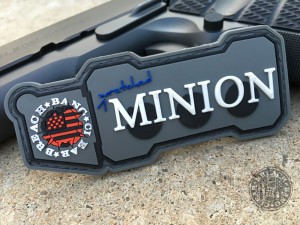
Do we have to respect Canadians???
I mean really!! I lived near the border for fort some years, I know plenty aboot them ehh!! Lol!! Great read though!!
I grew up in Charleston, SC, and we sure do love us some Revolutionary War and Civil War history there. We all learned about the French help in grade school.
The French have a cemetery in Yorktown. The Park Service website lists the casualties as well as marks the cemetery on the map.
(http://www.nps.gov/yonb/learn/historyculture/french-army-casualties01.htm)
Once upon a time, my liberty was restricted to runs thru the park; I would always pass the French just to let them know someone knew they were there.
Given the role that heavy French debt loads, much of it incurred supporting the Americans, played in bringing about the French Revolution, you can make the argument that Louis ultimately sacrificed his kingdom supporting America.
FWIW, the official French record counts 2,112 dead supporting the American revolution.
In that last pic, the flag on the right is Texas (yeah!) and the flag on the left is a Brittany regional flag. It was designed in 1923 from, among others, the flag of the USA. Bretons (people from Brittany) are French but also like to retain some of their different culture and language.
I have worked with and flown with the French Air Force and concur 110% that France is our ally.
Brian, Really? who cares what their motive was? The British had their motive in the war and the “Americans” had their motive as well. The French still died on our soil Allied with us. I suppose Ben Franklin could have gone to some other country to form an alliance but his best chances were to convince the French. Franklin knew that:The enemy of my enemy is my friend………….we still see that today.
Hate to say it but the French had already been at war with the English for years prior to America declaring Indepenence. The French saw an oppertunity to weaken the British further by encouraging American Independence.. thereby depriving them of a colony
“thereby depriving them of a colony”
Which is the exact same intent the Colonials had. The French did not have to do what they did, but it was mutually advantageous to lend support- financial, materiel, and personnel. Their reasons don’t make their assistance any less appreciated.
The French and British had a peace treaty in 1763 and it lasted until about 1778. Yes they’d been on and off at war since prior to 1700, but when the American war for independence began. They were at peace. The French only joined after they were certain the Americans could win, and than happened when the battle of Saratoga was won by the Americans. That battle removed a British army. From the list of thier TOE. I could go on about this, and French supplies and gold to pay troups and French support in Conneticut in 1779, but will leave that alone.